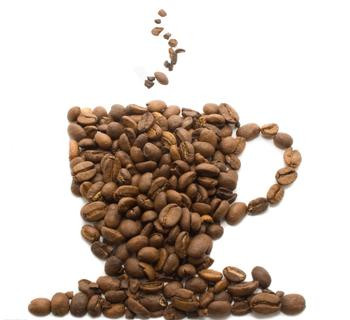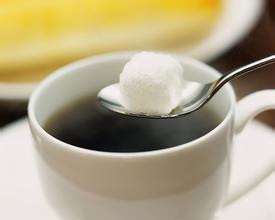When do you drink coffee? it's healthy coffee time.
Coffee contains caffeine, which excites the sympathetic nerves after entering the body, thus eliminating drowsiness, improving blood circulation, and the body also feels warm and does not feel tired, so it has a "refreshing" effect.

However, when the sympathetic nerve is stimulated and excited, it has a negative effect on appetite, that is, appetite will be reduced, so drinking coffee before a meal will not want to eat. In addition, due to the stimulation of the stomach and the increase of gastric juice secretion, stimulating the empty stomach is disadvantageous to patients such as gastric ulcers. This can be said to be the negative effect of coffee. But drinking after a meal is helpful to digestion because the secretion of gastric juice will increase. Therefore, there is absolutely no problem with drinking after a meal.
In addition, some people think that adding a little milk to drink can ease its irritating effect, but how much of a small amount of milk can neutralize caffeine, unless half milk and half coffee, mixed with coffee milk or milk coffee, may have some effect. For example, coffee and milk for breakfast, because there is more milk than coffee, although it is drunk on an empty stomach, it still has the effect of relieving gastric juice.
Ideally, drink after a meal, which is beneficial but harmless. One of the benefits is to prevent the onset of allergies. As a result of allergic parasympathetic nerve excitation caused by asthma or allergic rhinitis, if it can promote sympathetic nerve excitement, inhibit parasympathetic nerve, it will help to prevent the attack. Especially serious allergic patients, some mild incentives can cause physical discomfort, coupled with psychological fear of allergies, often out of control. Therefore, it is recommended to make use of the advantages of caffeine to drink a cup of coffee in advance when allergies and asthma are about to occur (the patient feels it), which is quite preventive. In addition to the excitatory effects of caffeine, patients who have "already had coffee" on sense of security are less likely to attack.
Of course, as the saying goes, "going too far is not as good as it is". No matter how good it is, we have to "enough is enough". Otherwise, regardless of drinking before and after meals, excessive caffeine will lead to hyperpalpitation (the heart beats violently), and even side effects such as trance, unstable walking center and so on.
In principle, it is appropriate to drink two to three cups of coffee a day. If you drink four or five cups, most people will feel sick, so be careful. In principle, no more than three cups a day is best for any kind of irritating drink.
Important Notice :
前街咖啡 FrontStreet Coffee has moved to new addredd:
FrontStreet Coffee Address: 315,Donghua East Road,GuangZhou
Tel:020 38364473
- Prev

Healthy coffee drinking should keep in mind the four elements of coffee drinking basics
With the development of modern science and technology, coffee has gradually entered the homes of ordinary Chinese people, and various beneficial ingredients in coffee are increasingly well known. Recent studies have shown that moderate drinking of coffee does not increase cholesterol, but excessive drinking can easily lead to gastrointestinal discomfort, so how to drink coffee is the right thing to do? Coffee Coffee is a beverage made from coffee beans.
- Next

Where is caffeine most effective? Coffee action
Caffeine has always been an active ingredient in beauty products, and traditional beauty benefits include eliminating puffiness, improving skin tightness, and refreshing aromas to help you exude vitality. But new research shows that caffeine, as a potential beauty ingredient, has powerful antioxidant and anti-inflammatory effects, keeping skin cells healthy. In the experiment, the University of Washington thinned healthy skin.
Related
- Beginners will see the "Coffee pull flower" guide!
- What is the difference between ice blog purified milk and ordinary milk coffee?
- Why is the Philippines the largest producer of crops in Liberia?
- For coffee extraction, should the fine powder be retained?
- How does extracted espresso fill pressed powder? How much strength does it take to press the powder?
- How to make jasmine cold extract coffee? Is the jasmine + latte good?
- Will this little toy really make the coffee taste better? How does Lily Drip affect coffee extraction?
- Will the action of slapping the filter cup also affect coffee extraction?
- What's the difference between powder-to-water ratio and powder-to-liquid ratio?
- What is the Ethiopian local species? What does it have to do with Heirloom native species?

